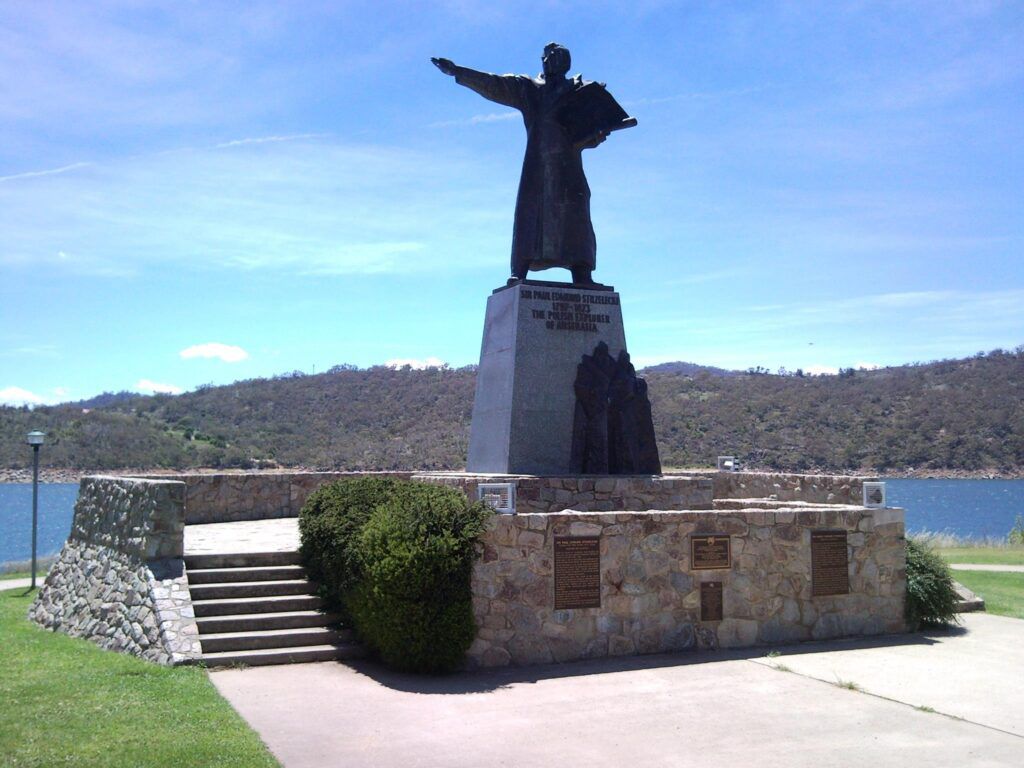Date: 6 December 2024 Author: Kevin Nowacki
Exploring the Unknown: The Life and Legacy of Paweł Edmund Strzelecki
Paweł Edmund Strzelecki stands as one of the most distinguished explorers and researchers of the 19th century. Although his name is less celebrated in Poland than in Australia or Ireland, his legacy ranks alongside the monumental achievements of Alexander von Humboldt and Charles Darwin.

Strzelecki’s contributions to geographical research, coupled with his steadfast commitment to humanism and patriotism, underscore a life defined by unparalleled dedication and vision.
Born on July 20, 1797, in Głuszyn, a village near Poznań, Strzelecki was deeply influenced by his father’s patriotic fervor, shaped by participation in the Kościuszko Insurrection. Despite the early loss of his parents, which could have stymied his ambitions, young Paweł exhibited remarkable resilience and intellectual prowess. Educated at Warsaw’s esteemed Collegium Nobilium, he later traveled extensively across Western Europe, gaining invaluable experience and financial stability. When denied the blessing of his beloved’s father, Strzelecki chose to leave the Greater Poland region, embarking on a journey that would redefine him as a cosmopolitan scientist and humanist.
In 1834, Strzelecki began a nine-year global expedition. His early research focused on North America, where he studied copper deposits and documented the lives of Indigenous communities. Unlike many of his contemporaries, Strzelecki approached Indigenous peoples with empathy and respect, offering sensitive and detailed accounts of their struggles. Later, in South America, he marveled at the region’s natural wealth and beauty, while his writings vividly chronicled the devastating impact of colonialism on Indigenous societies. His groundbreaking study of the Amazon jungle remains a testament to his profound understanding of nature’s intricate balance.
Australia became the focal point of Strzelecki’s scientific endeavors. Arriving in 1839, he was the first European to traverse the continent’s interior, discovering gold deposits and identifying its highest peak, which he named Mount Kosciuszko—a patriotic tribute to Poland. His seminal work, Physical Description of New South Wales and Van Diemen’s Land, remains an essential reference on Australian geography and natural resources. Strzelecki’s maps enabled mass migration to previously inaccessible regions, cementing his influence on the continent’s development.
His contributions to volcanology were equally groundbreaking. While studying volcanic activity on Pacific islands such as Hawaii and Tahiti, Strzelecki employed meticulous documentation methods that set new standards for scientific research.
A lesser-known chapter of Strzelecki’s life unfolded during Ireland’s Great Famine (1845–1847). As director of the British Relief Association, he orchestrated a nutrition program that fed nearly 200,000 people, primarily children. His Catholic background and ability to build trust with the local clergy ensured the program’s success in a community often distrustful of British authorities. To this day, Strzelecki is revered in Ireland as a savior of countless lives during one of the nation’s darkest periods.
Throughout his life, Strzelecki emphasized that his work abroad was imbued with a deep sense of Polish identity. By naming landmarks like Mount Kościuszko, he quietly celebrated Poland’s heritage and underscored its cultural contributions to the world. Although not a conventional political activist, Strzelecki embodied the values of Polish Romanticism—courage, diligence, and an unwavering love of freedom. His patriotism was expressed not through warfare or politics, but through accomplishments that elevated Poland’s standing globally.
Strzelecki passed away on October 6, 1873, in London. His legacy, spanning scientific innovation and humanitarian efforts, remains profoundly relevant. In 2023, the Polish parliament named him Patron of the Year to honor his remarkable contributions to global science and his life’s testament to the transformative power of knowledge, perseverance, and empathy. Strzelecki’s enduring legacy affirms the profound impact a single individual can have on nations and cultures. For Poles, he is remembered not only as an exceptional traveler and researcher but also as a cultural ambassador whose achievements continue to inspire.
References
· Dzieje.pl [accessed: December 3, 2024]. Available at: https://dzieje.pl/wiadomosci/150-lat-temu-zmarl-pawel-edmund-strzelecki-pierwszy-polak-ktory-okrazyl-swiat],
· Poznań.pl [accessed: December 3, 2024]. Available at: https://www.poznan.pl/mim/wortals/rokstrzeleckiego/-,p,68642,68645.html].
_____________________________________
The „Dumni z Polski/Proud of Poland/Stolz auf Polen” project was funded by the National Institute of Freedom – Centre for Civil Society Development as part of the Government’s Youth Fund Programme 2022-2033.
Support Us
If content prepared by Warsaw Institute team is useful for you, please support our actions. Donations from private persons are necessary for the continuation of our mission.
All texts published by the Warsaw Institute Foundation may be disseminated on the condition that their origin is credited. Images may not be used without permission.














